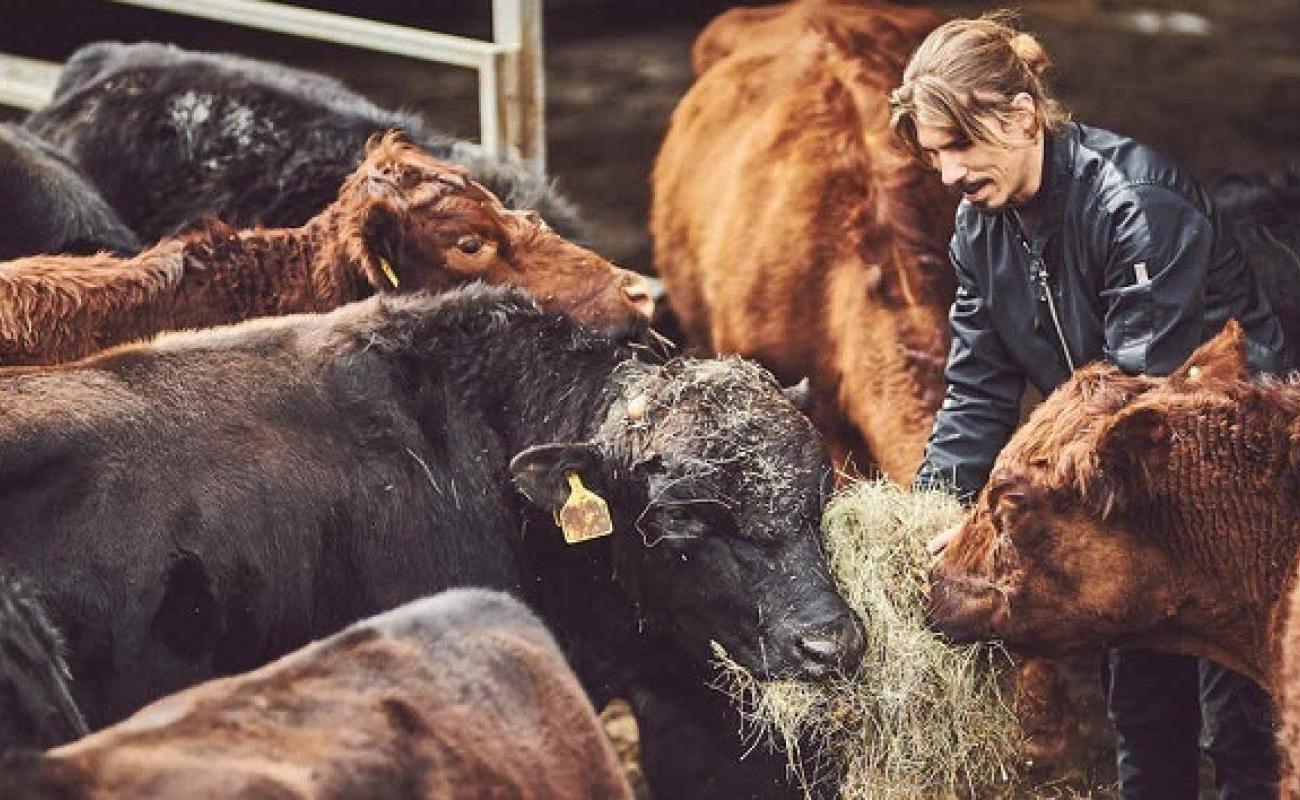EBRD and FAO boost the digitalisation of agribusiness in Montenegro
How much is a cow worth? In India, its divine status might yield the answer ‘invaluable’, but in Montenegro, a cow named Bitkoinka recently became the first farm asset of any kind to be bought with a virtual currency in the Western Balkans.

This is the story of how a young entrepreneur is pushing the frontiers of innovation in Montenegro, with support from the Food Agriculture Organisation of the United Nations (FAO) and the EBRD and its donors – the Central European Initiative (CEI), the Western Balkans Enterprise Development & Innovation Facility (WB EDIF) and the Shareholders Special Fund (SSF).
Bounding back with a purpose
Young entrepreneur Marko Maras from Montenegro decided to go on a soul-searching trip to South America a couple of years ago. After the ups and downs of running a video equipment rental business and the theft of approx. €17,000 worth of equipment, he had decided to make some major life changes.
While volunteering for months on farms in Bolivia, Peru and Ecuador in exchange for meals, Marko began to understand his life calling. He wanted to help to save small villages back home that were becoming neglected in favour of faster city developments.
His goal was simple: he wanted to close the gap between small producers and customers by offering a simple and easy online method to buy and sell local produce and cattle with no intermediaries.
This is how seljak.me – the first digital village in Montenegro – came to exist three years ago.
With incredible energy, Marko steered a small but dedicated team of young people to run the site as a local non-profit NGO, initiating a unique form of social entrepreneurship for small producers in Montenegro.
From agri to digital
At around the same time, the FAO and the EBRD Agribusiness and Advice for Small Businesses teams joined forces to support backward linkages between smaller-scale producers and the hospitality sector in the Western Balkans region, including Montenegro. This is how we first met Marko. When the pandemic brought a whole new set of challenges for the agrifood sector, the two organisations offered know-how and advisory support to seljak.me to revamp its online platform according to best practices.
The platform was scaled to include an online marketplace and a knowledge sharing platform accessible to all agricultural producers covering the following topics: food safety, market information and prices, food and vegetable production, safety and agrotechnical measures, and bee and honey production. The site also covers the agricultural scene in Montenegro and the broader region.
Since the launch of the redesigned website in May 2021, it has registered 160,000 unique visitors and 7,630,000 page views. The advisory programme provided an edgy marketing campaign, reflective of Marko’s unique personality, which is still ongoing, and the village continues to grow its community day by day.
Cryptocurrency or cryptocattle?
The website launch received much attention due to a clever marketing move designed to raise awareness about the increasing interlinkages between agribusiness and digital innovation. Andjela Bojic became the first customer in Montenegro to buy a cow online for 0.013 Bitcoin, the equivalent of approx. €1,400 at the time.
This news exploded in the local and regional media, turning Bitkoinka into regional celebrity, while also placing seljak.me on the radar of the agri-innovation frontier in the region.
“We thank the FAO and the EBRD, from which we have received support for the improvement of existing capacities so we can raise digitalisation to a new level. Expect more innovations in the field of digitalisation of agriculture from us soon,” says Marko.
Plans include the digitalisation of processes important to farmers, including administrative tasks such as registration and application for subsidies.
Bitkoinka showcases the wide array of opportunities for digitalisation and innovation in the agribusiness sector. The seljak.me platform supports integration of the local supply chain and opens the door for growing the digital and sustainable agricultural community, while also inviting younger generations to make their contribution by providing healthy food from farm to table in a simple click. The new platform has already helped sell 5,000 farm animals and place hundreds of new food products on the online market.
The seljak.me platform will soon promote high quality food, including products with Geographical Indication (GI) labels, from Montenegro. Opportunities also lie in scaling up B2B opportunities for producers, who can connect with the hotel, restaurant and catering (HORECA) sector directly via the online platform. It is exciting to witness and a privilege to support seljak.me, and Montenegro’s agribusiness and tourism sectors, towards reaching these goals.
By Vanja Kljajevic
